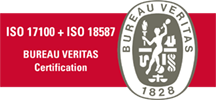Certified translation in Portugal: fast, legally valid, hassle-free
Need certified translation in Portugal for visas, studies or business? This guide explains who can certify, when you need an apostille, costs, and timelines.

Table of Contents
What does certified translation in Portugal actually mean?
In Portugal, a certified translation is a translation that is formally identified and accompanied by a statement confirming fidelity to the source document, with signatures and stamps accepted by Portuguese authorities. Depending on the destination, certification may be performed by a notary, a lawyer/solicitador, or by a translation company that arranges the correct form of certification and bundles the translator’s declaration.
For cross-border use, the “right” certification depends on who will read the document. A university may accept a translator’s declaration notarised in Portugal, while a court or foreign embassy can demand additional steps. To simplify selection and execution, work with a provider experienced in legal workflows. For example, M21Global explains certification options and typical authorities that request them on its page for certified translations.
Certified translations are not the same as legal translations, though they often overlap. Legal translation is a subject-matter specialty, while certification is a formalisation step applied to many document types. When your file contains contracts, court rulings or statutes, pair certification with specialist legal translation for accuracy and risk control.
Also searched as: certified translation Portugal (exact term used by some request forms).
When do you truly need certified translation in Portugal?
You need it whenever the receiving body explicitly requires “certified translation”, “official translation” or “sworn translation”. Typical triggers include immigration, study recognition, civil status updates, and company filings. A practical overview with examples is available in this certified translation guide.
If you are unsure whether certification or subject expertise is the driver, compare scenarios in “What is a legally certified translation?”—it breaks down document types and acceptance criteria with plain-language examples from real cases: what is a legally certified translation?.
For documents destined to countries that are party to the Hague Apostille Convention, authorities often ask for an apostille on the original (or on the notarial certification of the copy). Portugal participates via designated competent authorities listed by the Hague Conference; see Portugal’s entries in the HCCH directory of apostille competent authorities. If your receiving country is not a party, you will likely need diplomatic/legalisation instead.
Who accepts certified translations in Portugal?
Acceptance criteria vary by institution. Public bodies (e.g., civil registry offices, universities, courts) typically accept certified translations prepared in Portugal with proper notarisation or lawyer/solicitador certification. Many international recipients accept Portuguese certifications as long as the underlying signature is apostilled.
For civil registry matters moving between EU states, consider multilingual certificates. Portugal issues “international model” certificates that reduce or remove translation needs for certain events like birth, marriage or death. You can request these via the state portal for multilingual civil registry certificates. When these are available, they are faster and cheaper than commissioning a full translation.
Private recipients (banks, employers) often follow public standards but may still list their own rules. Before commissioning, ask for the requirement in writing and share it with your provider. An experienced vendor will confirm which certification route is valid and whether an apostille is necessary. If in doubt, consult M21Global’s FAQ or contact support with the recipient’s instructions attached.
Apostille vs. legalisation for Portugal
The apostille is a simplified method of recognising official signatures across member states of the Hague Convention. It certifies the authenticity of the signature and seal—not the content. For an authoritative reference on best practice, see the HCCH’s official Apostille Handbook. You may need:
- an apostille on the original document, or
- when translating a copy, an apostille on the certifying notary’s signature.
If the destination country is not part of the Convention, ask the embassy about legalisation steps. Your provider should map the path (notarisation → Ministry of Foreign Affairs → embassy). For background and a service overview, consult M21Global’s certified translations and the broader translation services catalogue.
Pricing, timing and what affects both
Costs depend on language pair, document volume, legibility, layout complexity (tables, seals), and the certification route. A short certificate (one to two pages) is usually delivered in a few business days, while bundles with multiple documents or rare languages take longer. Certification and apostille add administrative lead time.
To receive a precise quote, send clear scans and specify country of use, recipient type (court, registry, embassy), deadline, and whether you need physical originals delivered. This enables accurate scoping and prevents rework. For context on quality controls that affect consistency and cost predictability, see M21Global’s overview of ISO 17100 certified translation services.
How to avoid rework and rejections
First, confirm acceptance rules and any formatting quirks. For civil status changes, check if a multilingual certificate can replace a translation via the ePortugal service for international model certificates. Second, ensure your translator is briefed on jurisdictions, names, and abbreviations; supply references (previous filings, glossaries).
Third, ask for the certification path in writing before work begins. If the destination requires an apostille, verify which signature it must cover (original issuer vs. notary). For Portugal, the HCCH keeps the live list of competent authorities for apostilles—see the Portugal authorities directory. Finally, choose a vendor that combines legal expertise with operations maturity—compare specialist legal translation and full-service coordination on certified translations. For broader capabilities and rush handling, review the core translation services and practical guidance in the certified translation guide.
If you want more background, M21Global’s knowledge base answers typical edge cases—like whether a sworn translator from another country is accepted in Portugal, or when a re-issue is required. Start with the primer “What is a legally certified translation?” here: legally certified translation explained. For service scope, quality commitments and next steps, browse the company’s translation services overview.
FAQ
Q1. Who can perform a certified translation in Portugal?
In Portugal, the certification step can be handled by notaries or lawyers/solicitadores, and reputable translation companies coordinate that step along with the translator’s declaration. What matters is that the signature on the certification is recognisable by the recipient. Courts and registries generally accept notarised translator declarations; embassies may ask for further legalisation. For cross-border use, foreign authorities typically look for the presence of an apostille on the relevant signature, not the brand of the provider.
The translator’s job is accuracy; the certifier’s job is formal recognition. When both are correct, the translation stands up to scrutiny. If you are sending documents to a non-Hague country, ask the embassy for the legalisation path in writing and share it with your provider so the correct sequence is followed without delays.
Q2. When do I need an apostille for a certified translation in Portugal?
You need an apostille when the destination authority is in a country that is party to the Hague Convention and it requires validation of the signature (on the original or on the notarial certification). In practice, many universities and employers in member states accept apostilled originals plus certified translations. If the original cannot be apostilled (e.g., private documents), the notary’s certification of the copy can usually be apostilled instead.
If the destination is not a Convention member, apostilles do not apply and you must legalise via consular channels. Confirm the exact order—some embassies require prior validation by the Ministry of Foreign Affairs. This is why providers ask early about destination and recipient type: it determines the paperwork and timelines.
Q3. How much does a certified translation in Portugal cost and how long will it take?
Pricing is driven by three variables: volume/format, language pair rarity, and the level of formalisation. Clean, legible PDFs in common languages are faster and cheaper; scans with stamps, handwriting or tables take longer. Certification and apostille add administrative time for scheduling, postage and queueing at authorities. Provide your target date upfront—providers can often stage delivery (digital first, originals later) or prioritise critical pages.
To control costs, submit complete sets and avoid piecemeal requests. Ask for a single, itemised quote that includes certification and, if needed, apostille coordination. You’ll save time and reduce the risk of inconsistent formatting across documents handled at different times.
Q4. Will a certified translation done in Portugal be accepted abroad?
Yes, provided the certification and any apostille match the recipient’s rules. Many European public bodies accept notarised translations from Portugal, especially when the underlying signature bears an apostille. Outside the Hague system, consular legalisation replaces the apostille. Always read the recipient’s written requirement; small wording differences (e.g., “sworn translator” versus “notarised translator’s declaration”) can lead to rework if misunderstood.
When in doubt, ask the recipient for a sample acceptance letter or template. A good provider will validate the wording, prepare the correct declaration, and coordinate signatures. This alignment, more than any specific stamp design, is what ensures acceptance the first time.
Q5. What documents most often require certified translation in Portugal?
Most frequently: civil registry certificates (birth, marriage, death), academic records (diplomas, transcripts), legal documents (court orders, contracts, powers of attorney), corporate records (articles, minutes) and immigration paperwork. Some of these can be replaced—wholly or partly—by multilingual civil registry certificates issued in Portugal, which are recognised across many EU countries and can save time and cost.
Before commissioning, confirm whether the receiving body accepts multilingual models for your use case. If not, share the written requirement with your provider so that the correct certification path and, where applicable, apostille/legalisation are included in the quote and schedule.

